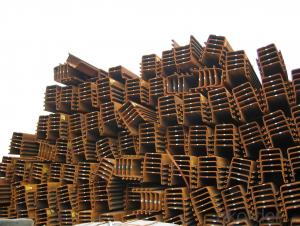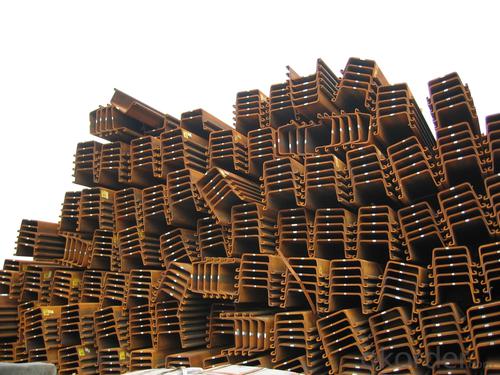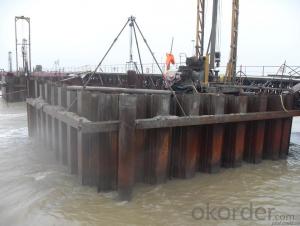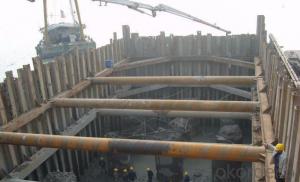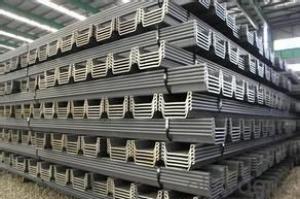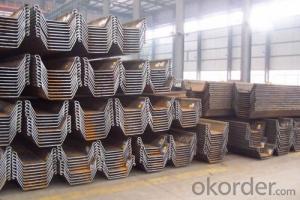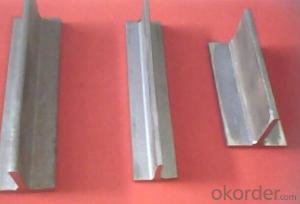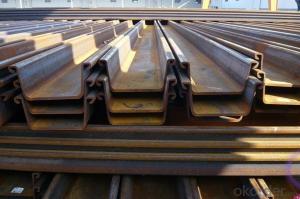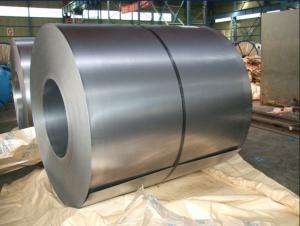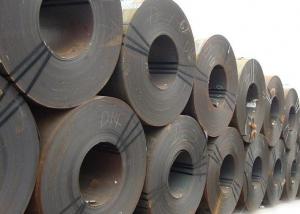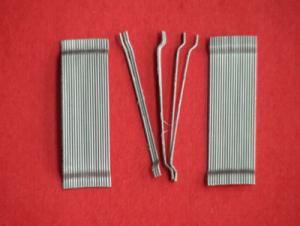Steel Tubular Pile 1200mm
- Loading Port:
- China Main Port
- Payment Terms:
- TT OR LC
- Min Order Qty:
- -
- Supply Capability:
- -
OKorder Service Pledge
Quality Product, Order Online Tracking, Timely Delivery
OKorder Financial Service
Credit Rating, Credit Services, Credit Purchasing
You Might Also Like
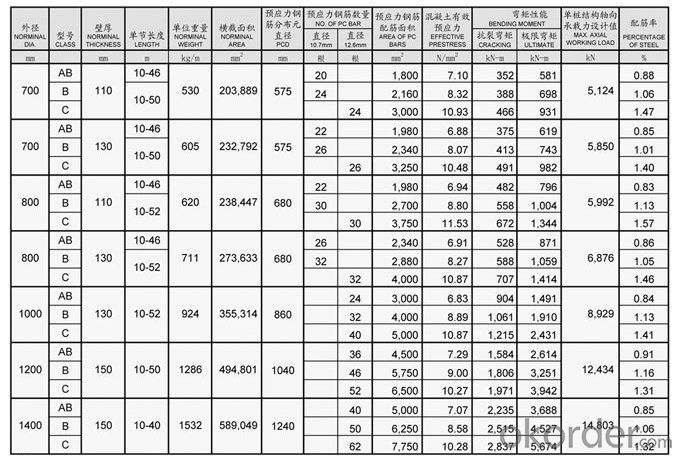
- Q: What are the different types of steel sections used in bridges?
- There are several different types of steel sections used in bridges, including I-beams, H-beams, box girders, trusses, and arches. Each of these sections offers unique structural properties and can be used in various bridge designs depending on the specific requirements and loads that need to be supported.
- Q: What are the properties and characteristics of different steel products?
- Different steel products have varying properties and characteristics based on their composition, manufacturing process, and intended use. Some common properties include high strength, durability, and excellent corrosion resistance. Additionally, steel products can have different mechanical properties, such as hardness, ductility, and toughness, depending on their specific grade and heat treatment. These properties make steel products suitable for a wide range of applications, including construction, automotive manufacturing, and household appliances.
- Q: How is steel used in the construction of stadiums and sports facilities?
- Steel is used in the construction of stadiums and sports facilities for its strength, durability, and versatility. It is used to create the framework and support structures, including beams, columns, and trusses, which provide stability and ensure the safety of the entire structure. Steel's high load-carrying capacity allows for large open spaces and long spans without the need for excessive supports. Additionally, steel is often used for roofing, cladding, and other architectural elements due to its aesthetic appeal and ability to withstand various weather conditions. Overall, steel plays a crucial role in creating robust and visually appealing stadiums and sports facilities.
- Q: What are the properties of galvanized steel?
- Galvanized steel is a type of steel that has been coated with a layer of zinc to protect it from corrosion. Its main properties include excellent durability, resistance to rust and corrosion, high strength and toughness, and a shiny appearance. Additionally, galvanized steel is cost-effective, easy to work with, and has a long lifespan, making it a popular choice in various industries, such as construction, automotive, and manufacturing.
- Q: How are steel plates used in the fabrication of storage tanks?
- Steel plates are used in the fabrication of storage tanks as they provide a strong and durable material that can withstand the pressure and weight of the stored contents. The plates are cut and welded together to form the tank's structure, ensuring a secure and leak-proof container for storing various substances such as liquids or gases.
- Q: How are steel bars used in the reinforcement of dams and reservoirs?
- Steel bars, also known as rebar, are used in the reinforcement of dams and reservoirs to enhance their structural strength and durability. These bars are embedded within the concrete of the dam or reservoir structure to provide tensile strength and prevent cracking or collapsing under heavy loads or external forces. The steel bars act as a skeleton, absorbing and distributing the stress and pressure exerted on the structure. This reinforcement helps to ensure the stability and longevity of dams and reservoirs, making them capable of withstanding the immense water pressure and environmental conditions they are exposed to.
- Q: How is steel used in the manufacturing of storage tanks?
- Steel is commonly used in the manufacturing of storage tanks due to its durability, strength, and resistance to corrosion. It provides a reliable and long-lasting material for containing and storing various substances such as liquids, gases, or solids. Steel storage tanks are widely used in industries such as oil and gas, chemical, water treatment, and agriculture, ensuring the safe and efficient storage of materials.
- Q: What are the different types of steel wires and their applications?
- There are several types of steel wires used in various applications. Some common types include low carbon steel wire, high carbon steel wire, stainless steel wire, galvanized steel wire, and spring steel wire. Low carbon steel wire is versatile and commonly used in construction, fencing, and general-purpose applications. High carbon steel wire is stronger and more durable, making it suitable for springs, piano wires, and wire ropes. Stainless steel wire is corrosion-resistant and often used in marine environments, medical instruments, and food processing industries. Galvanized steel wire is coated with zinc to prevent rust and is commonly used in agriculture, construction, and electrical applications. Spring steel wire is designed to have excellent elasticity and is used in springs, suspension systems, and mechanical applications where high strength and flexibility are required. Overall, the choice of steel wire depends on the specific requirements of the application, considering factors such as strength, corrosion resistance, and flexibility.
- Q: How do steel products contribute to the construction of data centers and IT facilities?
- Steel products play a significant role in the construction of data centers and IT facilities by providing structural support, durability, and safety. Steel is widely used in the construction of the building's framework, ensuring the facility can withstand the weight of heavy equipment and support the complex infrastructure required for data storage and processing. The use of steel also allows for flexible and scalable designs, accommodating future expansions or modifications. Additionally, steel's fire-resistant properties help protect critical IT equipment from potential hazards, making it an essential component in ensuring the reliability and security of data centers and IT facilities.
- Q: What are the advantages of using steel bars in construction?
- There are several advantages of using steel bars in construction. Firstly, steel bars are incredibly strong and durable, providing structural integrity to buildings and ensuring they can withstand heavy loads and adverse weather conditions. Additionally, steel bars have a high tensile strength, allowing for longer spans and lighter structures, which can lead to cost savings in terms of materials and construction time. Moreover, steel bars are resistant to fire, corrosion, and pests, making them a reliable choice for long-term durability. Lastly, steel bars can be easily fabricated and customized to meet specific design requirements, offering flexibility and versatility in construction projects.
Send your message to us
Steel Tubular Pile 1200mm
- Loading Port:
- China Main Port
- Payment Terms:
- TT OR LC
- Min Order Qty:
- -
- Supply Capability:
- -
OKorder Service Pledge
Quality Product, Order Online Tracking, Timely Delivery
OKorder Financial Service
Credit Rating, Credit Services, Credit Purchasing
Similar products
Hot products
Hot Searches
Related keywords
